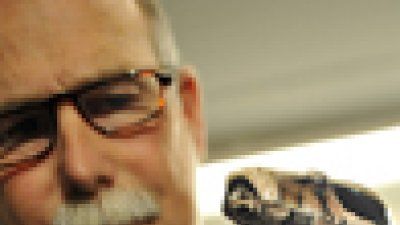University of California San Francisco
Give to UCSF-
-
Master of Translational Medicine Program Gets Final UC Approval
<p>Two years after launching as a pilot effort, an innovative graduate curriculum in translational medicine jointly offered by <abbr title="University of California, San Francisco">UCSF</abbr> and <abbr title="University of California">UC</abbr> Berkeley has received final approval from University of California President Mark Yudof as a master’s degree program.</p>

-
10 Things Assisted-Living Homes Won't Tell You
-
Mysterious Snake Disease Decoded
A novel virus has been identified as the possible cause of a common but mysterious disease that kills a significant number of pet snakes all over the world, thanks to research led by scientists at the University of California, San Francisco (UCSF)—and three snakes named Juliet, Balthazar and Larry.

-
'Mad Snake Disease' Caused by New Set of Arenaviruses, Says Study
-
Lethal Snake Viruses Identified
-
Pain Reported by Nearly Half With Type 2 Diabetes
-
Memory and the Aging Brain
-
In Vietnamese Community, Treating Taboos on Cancer
-
Why Do Women Get More Migraines?
-
New Curriculum Teaches Pediatric Residents Proper Handoffs to Maximize Patient Safety
<p>The UCSF Benioff Children's Hospital is participating in a nine-center study to determine how to best teach pediatric residents how to hand off patients properly to reduce medical errors.</p>

-
JARDINE: Children's Hospital Receives a Gift that Rocks
-
Generation Apnea
-
Daniel Borenstein: Air District's Richmond Refinery Fire Statement Incomplete, Inaccurate
-
Deserve to Die Campaign
-
What Ryan Gosling Knows that Your Man Doesn't
-
Handy HIV Tests Help More Learn Status
-
Drug that Can Extend 'Honeymoon' Period May Help Prevent Diabetes
-
Depression Linked to PAD in Heart Patients
-
At UCSF Farmer's Markets, Health is Always in Season
<p><span>UCSF’s mission of “advancing health worldwide” can begin at home with farmer’s markets conveniently located on campus.</span></p>

-
Artery Disease Linked to Depression
-
The Big Wait
-
Research Grants: Sutter, Other Nonprofits Win; Kaiser Gives
-
UC Releases 2011 Annual Payroll Report
<p><span>Consistent with its commitment to transparency and public accountability, the University of California on Thursday released its annual report on systemwide employee compensation for calendar year 2011. </span></p>

-
Diversity of Global Health Graduating Class Reflects Program's Broad Reach
<p>The newest graduates of UCSF’s Global Health Sciences masters program are idealistic but well aware that they don’t live in an ideal world. They’re not going to let that stop them.</p>

-
Study Finds Association Between Depression, PAD
-
New Standards to Improve Diagnosis of Sjogren's Syndrome
<p><span>Sjögren's syndrome largely was unknown to the American public until tennis star Venus Williams withdrew from the U.S. Open last year and announced she had the autoimmune disease, in which a person’s white blood cells attack glands that produce tears and saliva.</span></p>

-
Bioscience Entrepreneurs Navigate Funding Options in Inaugural Course
<p>A first-of-its-kind UCSF course to help bioscience entrepreneurs secure funding met with high interest and overflowing classrooms during its five-week run this summer.</p>

-
Richmond Air Quality Safe, Analysis Says
-
What's So Bad About a Boy Who Wants to Wear a Dress?